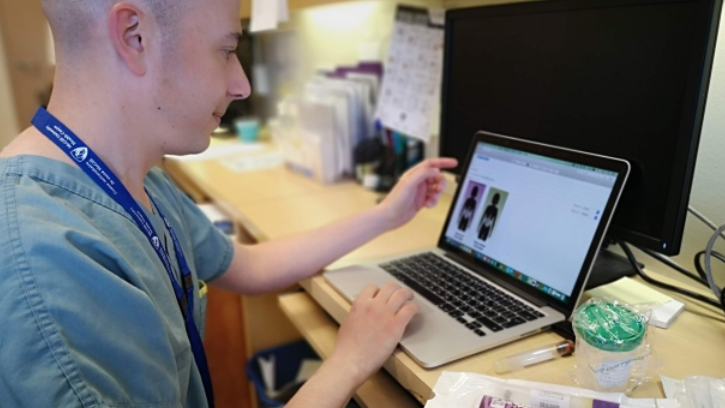A Canadian study done at McGill University, has revealed a link between fibromyalgia and alterations in gut bacteria, a discovery researchers say could lead to faster diagnosis for patients dealing with the chronic pain condition. (Main picture: Dr. Amir Minerbi, from the Alan Edwards Pain Management Unit at the McGill University Health Centre )
Fibromyalgia is characterized by widespread musculoskeletal pain, fatigue and cognitive difficulties and affects about two to four per cent of the population. There is no known cure for it at this time.
Researchers identified 19 species of gut bacteria that were either increased or decreased in patients with the condition.
“We found that fibromyalgia and the symptoms of fibromyalgia contribute more than any of the other factors to the variations we see in the microbiomes of those with the disease,” said study author Dr. Amir Minerbi, who works with the Alan Edwards Pain Management Unit at the McGill University Health Centre.
“We also saw that the severity of a patient’s symptoms was directly correlated with an increased presence or a more pronounced absence of certain bacteria—something which has never been reported before.”
Though researchers say it’s not yet clear whether the changes in gut bacteria in fibromyalgia patients are markers of the disease, or whether they play a role in causing it, the findings are incredibly promising for fibromyalgia patients who often face a lengthy journey to diagnosis. It is reported many wait four to five years before being diagnosed.
A FRUSTRATING DISEASE
“People with fibromyalgia suffer not only from the symptoms of their disease but also from the difficulty of family, friends, and medical teams to comprehend their symptoms,” says Yoram Shir, the senior author of the paper and the director of the Alan Edwards Pain Management Unit at the MUHC and an associate investigator from the BRaiN Program of the RI-MUHC.
“As pain physicians, we are frustrated by our inability to help, and this frustration is a good fuel for research. This is the first evidence, at least in humans, that the microbiome could have an effect on diffuse pain, and we really need new ways to look at chronic pain.”
The research was based on a cohort of 156 individuals in the Montreal area, 77 of whom suffer from fibromyalgia. Participants in the study participated in interviews and gave stool, blood, saliva, and urine samples, which researchers then compared with those of healthy control subjects, some of whom lived in the same house as the fibromyalgia patients or were their parents, offspring, or siblings.
The researchers’ next steps will be to see whether they get similar results in another cohort, perhaps in a different part of the world, and to do further studies to discover whether changes in bacteria play a role in the development of the disease.
To receive similar content, “Like” us on Facebook @ https://www.facebook.com/niagarabuzz.ca










